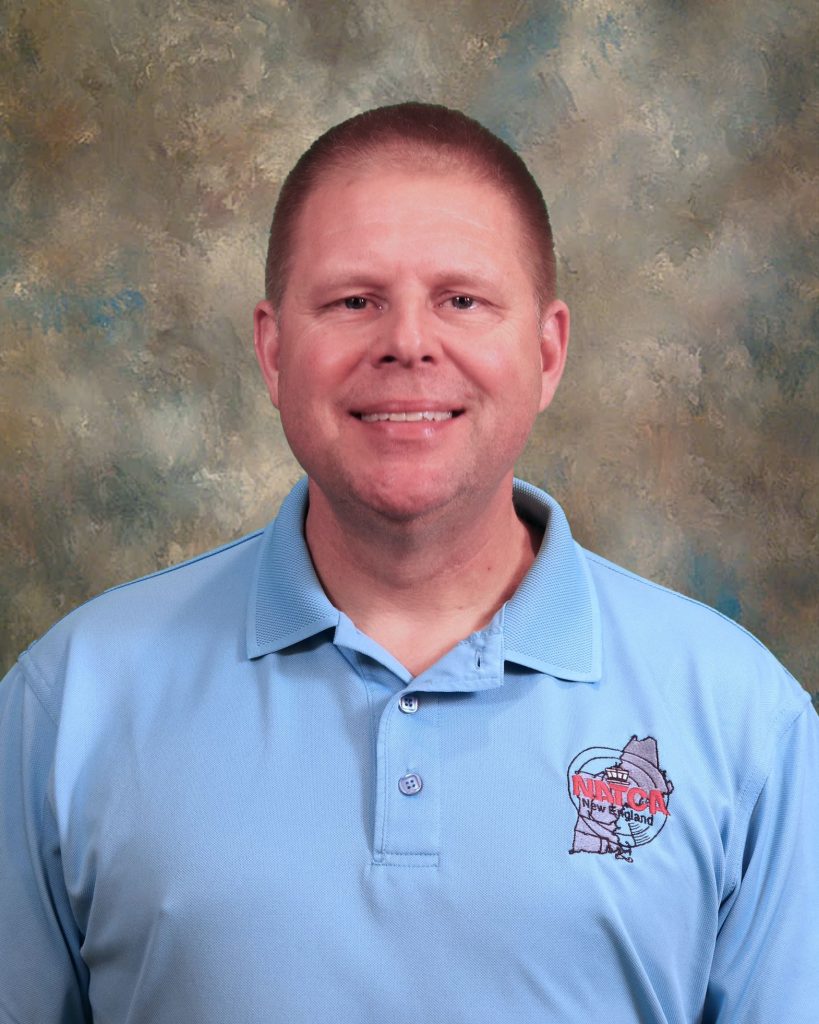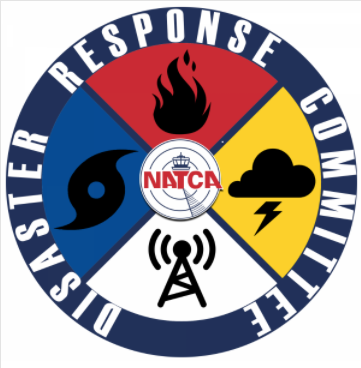
August 2022 New England Bi-Monthly Regional Update #2
From Bryan Krampovitis, NATCA New England ARVP

Over the years many discussions have come up revolving around acting as controller-in-charge and working the watch desk position. I wanted to highlight some of the contractual details of CIC, and some of the union’s views on the position.
I want to start by stating that in a perfect world, no Bargaining Unit Employee would fulfill the role of CIC—ever. CIC is a management function and to the maximum extent possible should be worked by a member of management. The contract is clear on this as Section 1 of Article 18 states, “Assignments of employees to CIC duties are used, when necessary, to supplement the supervisory staff.” Many times, this point is missed and we “happily” provide more CIC coverage than the supervisory staff because we get premium pay for it. The problems with this are two-fold, and I will explain why.
First, it is Management’s job to supervise the workforce and provide performance management. When they are not in the operation observing performance, and managing the shift, they can attempt to pass on that responsibility to a Bargaining Unit Employee. This takes the form of having poor performance go unaddressed which fosters unfavorable working conditions for everyone in the Bargaining Unit. It also allows the Bargaining Unit Employees to take the blame during operational events. All too often I hear comments made after an event that suggests a CIC was not appropriately working the watch desk because the event was allowed to happen, suggesting that if a member of management had been working the desk it wouldn’t have happened. This is nonsense. Management cannot effectively manage performance from the back office. Higher performing workforces almost always equate to happier working conditions and less conflict between employees.
The second issue with Bargaining Units working CIC is covered by Section Two of the contract. This is where it states that management direction, guidance, and goals for the shift shall be conveyed in facility directives, or during the shift/area position relief briefing. Simply put, if that guidance is not conveyed, it is put on the Bargaining Unit Employee to manage the shift. Oftentimes, this triggers management’s attempt to run the shift from the back office by calling the operational area and trying to manage the shift from their desk. This is not how the watch desk is allowed to be run. When you are in charge of the watch desk acting as CIC you have the same role, responsibility, and authority to manage the shift as the supervisory staff, except that you shall not provide oversight of drug testing, provide performance management (beyond on the spot corrections), or take part in promotional or disciplinary actions. This means you have the same authority to approve leave, manage breaks, open and close positions, and assign work, along with everything else a supervisor has the authority to do. FAA order 7210.3 goes as far as stating that managing the shift cannot be performed from outside of the operational area and requires direct situational awareness of the operation. This is not possible from the back office. However, this doesn’t stop management from attempting to performance manage the decisions you make while working the watch desk after the fact. The fix for this is easy, if you (management) want the shift run your way, you (management) should manage the shift yourself.
For these reasons I always explain that if we had the choice, management would provide watch desk coverage 100% of the time and have 100% responsibility for managing the operation. It is easy to forget what the actual role of CIC/watch desk coverage is and the full responsibility of the position. I suggest everyone that works CIC from time to time take a look at Article 18 and Section 6 of the 7210.3. You might be surprised at how much you don’t know about the position. If you find something done incorrectly in your facility do not hesitate to bring it to your FacRep’s attention.
Collaboration
From Curt Fischer, Collaboration Facilitator, Eastern Service Area North, A90

Interest-Based Communication (IBC) is a one-day course taught by collaboration facilitators to leaders in all our facilities. IBC is a way to look at an issue, understand the interests on both sides, and discover a solution that satisfies as many interests as possible. In IBC, we look at either side’s position to identify the underlying interests. By doing so, we often discover shared interests allowing both sides to build off those common points, break through roadblocks and develop win-win solutions. Safety is usually a shared interest that can be a starting point to build off and is also the topic of this update.
Safety is why our profession exists; as former NATCA President Paul Rinaldi coined, “Safety is in our DNA.” Safety is why NATCA hosts the aviation industry’s leading conference on safety, technology, and building relationships – Communicating for Safety (CFS). On September 12th, we again address safety and the impact on our ATC system in an open dialogue. We also recognize our member’s successes at the Archie League award banquet on Wednesday night to close out CFS. This year I am excited to hear former U.S Navy Commander Michael Abrashoff speak. My first introduction to Michael was from his book, gifted to me by a former collaboration facilitator, about his command of the USS Benfold.
Ahead of next month’s focus on safety, I had a chance to represent NATCA at the ATO Safety Management System Summit and participate in project storm operation try out a newly developed course on risk management. Both events were highly collaborative and built on shared interests in safety.
This past week I spent some time with NATCA New England’s Safety Rep Seth Myers. Seth and I worked many years together in support of NATCA’s ASI Committee. It was an excellent time to sit down and look at where we are in New England regarding safety. Seth has been paramount in increasing communication across New England local safety councils. He has organized monthly LSC group conferences to address regional safety issues. Seth has also been an advocate for bringing Safety Advocacy training to Nashua on September 28-29 and is currently onboarding PVD Facrep Nicholas Cassano onto the regional team.
OSHA
From Matt Murray, NATCA New England OSHA Rep, ZBW

Occupational Safety and Health (OSHA) has hundreds of rules and regulations that the government must comply with, many of which do not apply to us in our jobs as controllers. In addition to OSHA regulations, the FAA has a set of orders to further add protections for the health and safety of the FAA workforce.
J.O. 3900.76 is our Indoor Air Quality (IAQ) order that deals with significant issues like mold, temperature, and humidity levels directly affecting us as controllers.
I recently used this order to assist members at BED who lost their primary HVAC system, and the temperatures in the cab were pushing 90 degrees. The order gives workplace guidelines as to what the inside air temperature should be, 67-78 degrees Fahrenheit. Tech-Ops at BED did try to help keep the tower cab cooler by bringing in a small portable air conditioner; it simply was not enough to handle the high heat in the cab.
After a quick discussion with the Environmental Services management group at the Service Center, we agreed that the temperatures were unacceptable and that more would need to be done. We discussed multiple options to address the issue, including purchasing additional portable A/C units for the cab and other areas in the tower to act as cooling stations and the possibility of limiting exposure time in the cab. The additional A/C unit was installed the next day and kept the temperature warm but reasonable until their main unit was repaired.
This specific order was reviewed and updated in 2020 by Karena Marinas (National OSHA Rep) and Geoff Bacchi (NATCA’s contracted Certified Industrial Hygienist) before it was given NATCA’s seal of approval.

On September 8th, at 4 PM EST, the NATCA OSHA Committee will be holding a Virtual Training focused on Temperature, Humidity, and the HVAC Systems in your buildings.
Register Here for our next OSHA Committee Virtual Training: Tools and Resources for Protecting our Safety and Health: Job Comfort and Safety
Upcoming Events

The 2022 Milford Labor Day parade is on and NATCA New England will be marching! We will meet at Milford High School at 12:00 pm for a parade start of 1:00 pm. After the parade, we will meet at the Milford VFW for a catered lunch. We look forward to seeing you there!

You can also click here to sign up for the Cornhole Tournament!
Disaster Response Committee

NATCA established its Disaster Relief Fund in 1992 after Hurricane Andrew devastated south Florida and many of our members suffered damage. The fund has been used to aid our sisters and brothers and their families after 9/11, multiple hurricanes, tornadoes, ice storms, wildfires, and floods.
Following the devastating 2017 hurricane season, NATCA formed the Disaster Response Committee to manage the disaster relief fund and organize the relief process for NATCA members affected by a disaster.
100% of donations made go back to aid our members and their families during a great time of need. Due to the generosity of our membership, our fund has continued to grow and has provided assistance to those members affected when disaster strikes.
We here in New England are lucky to not endure many natural disasters, but when we have had storms that brought us major flooding or snowstorms that knocked out power for days, the DRC was ready to help! Please consider making a donation that will go to help your NATCA sisters and brothers in the future.
How Can I Donate to the Disaster Relief Fund?
Sign up for automatic payroll deductions
PayPal your donation to [email protected]
Mail a personal check payable to “Disaster Relief Fund” to:
NATCA
Attn: Accounting Department
1325 Massachusetts Ave.
NW Washington, D.C., 20005

